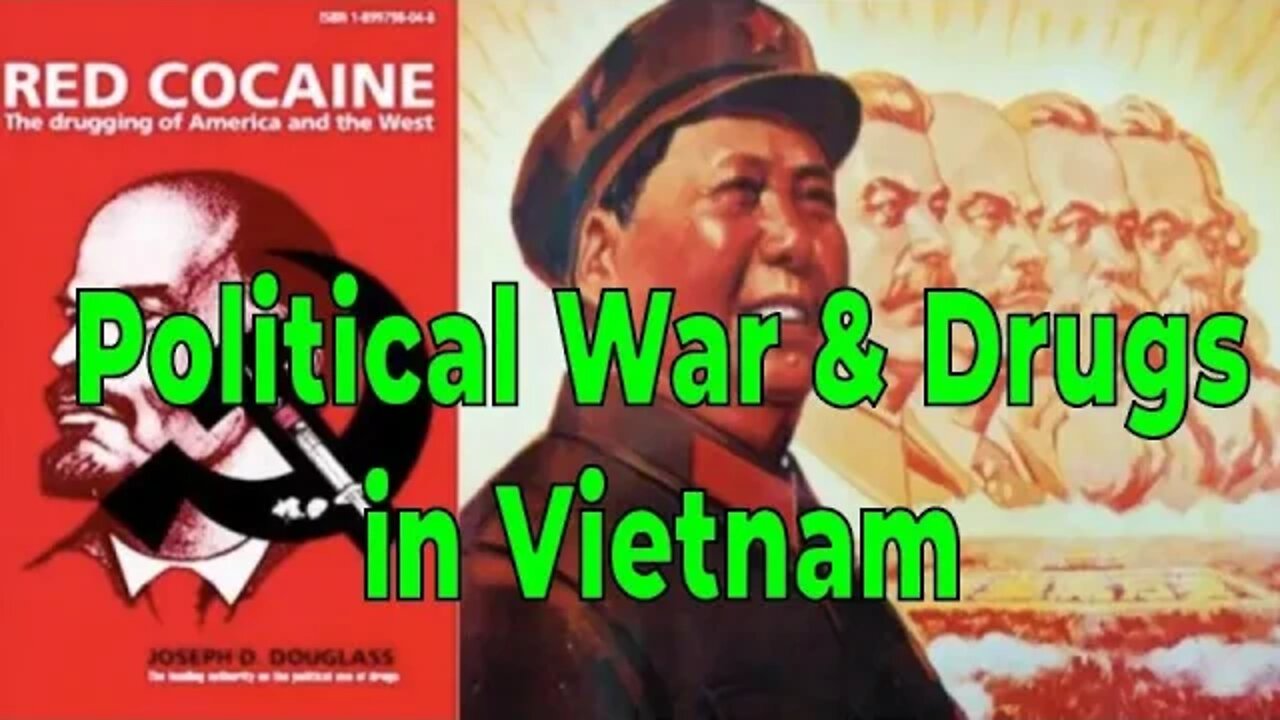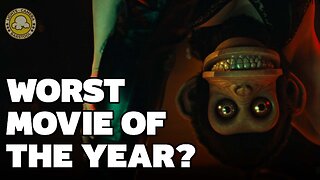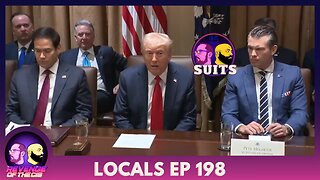Premium Only Content

Red Cocaine: The Drugging of America and the West – Joseph D. Douglas – Chapter 6
Chapter 6: Political War & Drugs in Vietnam
Buy: https://www.amazon.com/Red-Cocaine-Drugging-America-West-dp-1899798048/dp/1899798048
Publisher: Edward Harle Limited; 2nd edition (June 1, 1999)
Please support the creation of important audio books and articles via:
Paypal: paypal.me/mario1337
Bitcoin: 35iDtUzZq33CoJhmK38TdV9Xunvs7TKmzX
Ethereum: 0xf396A0e10911b4BC975CfE80117412D484B24d1e
I found a way to produce books in a decent quality automatically a lot faster, but the web service produces costs while layout and creation of the videos use up a lot of time. Thank you!!
The book shows how international communism has used opium and cocain as a powerful weapon against the West. Dr. Ray S. Cline, Ph.D., a former Deputy Director for Intelligence for the CIA, said: "A powerful and well-documented case of a deliberate policy decision, first by authorities in Beijing and then in Moscow, to contribute to the decay of American society."
References to Chapter 6:
1 Chinese trafficking during the Vietnam War is reported in Hamburger, The Peking Bomb, op. cit, pages 117-148 and Candlin, Psycho-Chemical Warfare: The Chinese Communist Drug Offensive Against the West, op. cit., pages 240-266. The role of China was also confirmed by US intelligence and fact-finding missions. Sejna cor-roborated these reports. His knowledge was based on detailed Soviet and Czechoslovak intelligence reports.
2 Interview with Molloy Vaughan, May 1989. General Sejna further reports that the successful use of narcotics by the Chinese and Vietnamese Communists in the Indochina War was also studied by the French Communist Party, based on reports from Communists in the French Army in Vietnam. This French study was reviewed in Czechoslovakia during a Czechoslovak study undertaken to intensify drug-trafficking in the mid-1960s. The French study also blamed the use of drugs on 'bourgeois officers', some of whom were involved in the trafficking.
3 Reported by Mikhail Suslov at the February 1964, Moscow meeting of high-level East European leaderships which Sejna attended. The effects of the decision were also reflected in Candlin, Psycho-Chemical Warfare: The Chinese Communist Drug Offensive Against the West, op. cit, page 114.
4 T'ang Ming-chieh, Specialist, Bureau of Investigation, Ministry of Justice, Republic of China, The Maoist Production of Narcotics and Their Intrigue to Poison the World', Issues and Studies, June 1973, page 35.
5 Also, in 1959 a delegation of the armed forces of North Vietnam, led by the Chief of the General Staff, visited the Soviet Union and other Warsaw Pact countries. Sejna was the host for the visiting delegation in Czechoslovakia. The main purpose of the visit was to obtain military equipment for the North Vietnamese army. At that time, the North Vietnamese expected the United States to increase its commitment to South Vietnam and wanted to prepare for the coming war. As part of their preparation, they were planning to reorganise their whole country for general war.
6 The Maoist Production of Narcotics and Their Intrigue to Poison the World', op. cit., page 36, citing an article in the French magazine Histoire Pour Tous, January 1973. The episode is also described in the more widely read reference book by Mohammed Hassanein Heikal, Nasser: The Cairo Documents (New York: Doubleday, 1971), pages 278-279. See also Hamburger, The Peking Bomb, op. cit, pages 143-148 and Candlin, Psycho-Chemical Warfare: The Chinese Communist Drug Offensive Against the West, op. cit, pages 21-24.
7 Sejna was responsible for the Chinese Minister's schedule in Czechoslovakia and for assisting in the Soviet attempt to recruit the Minister. In preparation for his visit, Novotny was instructed by officials from the Soviet Inter-national Department. Other Czechoslovak officials were instructed by their Soviet adviser. In February 1964, Suslov presented a major speech on China at a meeting of the Soviet Central Committee. This was the formal time at which the Soviets stated that they had concluded that China was 'not about to march in step' and that the rift between China and the Soviets was irreversible. Suslov discussed many aspects of Chinese foreign policy, including China's drug operation. It was during this discussion that Suslov explained the reasons behind the Chinese Defence Minister's liquidation. The information had been obtained by Soviet intelligence. The secret element of this speech contained details on Soviet operations against China. In 1965, China was added to the Soviet 'main enemies' list.
8 See, for example, Stefan T Possony, 'Maoist China and Heroin', Issues and Studies, November 1971. The increase is undoubtedly the product of the combined competing trafficking of the Chinese and North Vietnamese-Czech Soviet operations.
9 Henry Kissinger, White House Years (Boston: Little Brown and Company, 1979), page 509.
See rest of notes in the video.
#drugs #drugtrafficking #communism
-
 25:17
25:17
Eugen Richter Audiobooks
1 year agoStalins Secret Agents – Evans & Romerstein – Chapter 10: The War Within the War
1.48K2 -
 7:03:49
7:03:49
Dr Disrespect
12 hours ago🔴LIVE - DR DISRESPECT - NEW PC VS. DELTA FORCE - MAX SETTINGS
146K26 -
 49:04
49:04
Lights, Camera, Barstool
1 day agoIs The Monkey The Worst Movie Of The Year?? + Amazon Gets Bond
57.4K4 -
 24:19
24:19
Adam Carolla
1 day agoDiddy’s Legal Drama Escalates, Smuggler Caught Hiding WHAT? + Philly Eagles & The White House #news
74.3K13 -
 10:12
10:12
Mike Rowe
2 days agoClint Hill: What A Man. What A Life. | The Way I Heard It with Mike Rowe
96.2K10 -
 1:31:52
1:31:52
Redacted News
8 hours agoBOMBSHELL! This is war! FBI whistleblowers reveal Epstein files being destroyed? | Redacted News
167K361 -
 48:55
48:55
Candace Show Podcast
8 hours agoSTOP EVERYTHING. They FINALLY Mentioned ME In The Blake Lively Lawsuit! | Candace Ep 152
147K127 -
 1:02:51
1:02:51
In The Litter Box w/ Jewels & Catturd
1 day agoWhere are the Epstein Files? | In the Litter Box w/ Jewels & Catturd – Ep. 750 – 2/26/2025
104K87 -
 1:59:06
1:59:06
Revenge of the Cis
10 hours agoLocals Episode 198: Suits
87.7K12 -
 1:38:56
1:38:56
SLS - Street League Skateboarding
1 day agoTop Moments from the Second Half of the 2024 SLS Championship Tour! All The 9’s 🔥
60.7K2